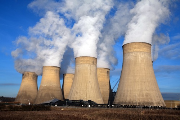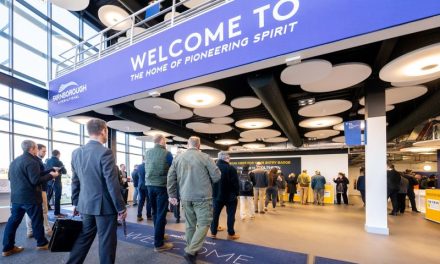 Smart grid and demand management company, KiWi Power, has claimed that while some are billing London 2012 as the world’s first truly sustainable Olympic Games, it will still rely on ‘dirty’ power stations to provide additional electricity.
Smart grid and demand management company, KiWi Power, has claimed that while some are billing London 2012 as the world’s first truly sustainable Olympic Games, it will still rely on ‘dirty’ power stations to provide additional electricity.
The National Grid will use these part loaded coal fired power stations to cope with surges during ‘TV pick-ups’ throughout the Olympic schedule.
TV pick-ups are unique to Britain and present major challenges for the National Grid in keeping the supply and demand of electricity in constant balance. National Grid has been working hard to prepare for the games and has planned for a wide range of scenarios as millions of viewers take a break and turn their kettles on.
Green Games
Sustainability and carbon reduction have been top priorities throughout the planning of the London 2012 Olympic Games. However, as Yoav Zingher, director and CEO of KiWi Power explained, there are still some aspects of the games that are less environmentally friendly. He said, “Peak demand for energy is likely to occur throughout the games, particularly after events such as the opening ceremony and the men’s 100m final. These rapid fluctuations in electricity demand will be managed by additional facilities such as part loaded coal fired power stations – not the most environmentally friendly way of meeting energy demand.”
KiWi Power is helping to meet these energy demand peaks through its Demand Management service with National Grid – reducing demand at frozen food distribution centres and switching on local generation at NHS hospitals.
Negawatts
KiWi Power claim that the use of part loaded power stations is inefficient, expensive and pollutes the atmosphere. Demand Management programmes allow aggregators, such as KiWi Power, to present utility companies and grid operators with a virtual power station operating in ‘negawatts’, or ‘negative megawatts’. A negawatt is a megawatt of power that doesn’t need to be produced or expended.
KiWi further claim that following initial energy audits and the installation of free smart energy metering technology, industrial and commercial companies can manage their energy consumption by turning down non-essential services such as lighting, heating and air conditioning during periods of peak energy demand.
This removes the need for National Grid to bring polluting power stations online and allows businesses to receive substantial payments for responding to peak demand events while reducing carbon emissions.



